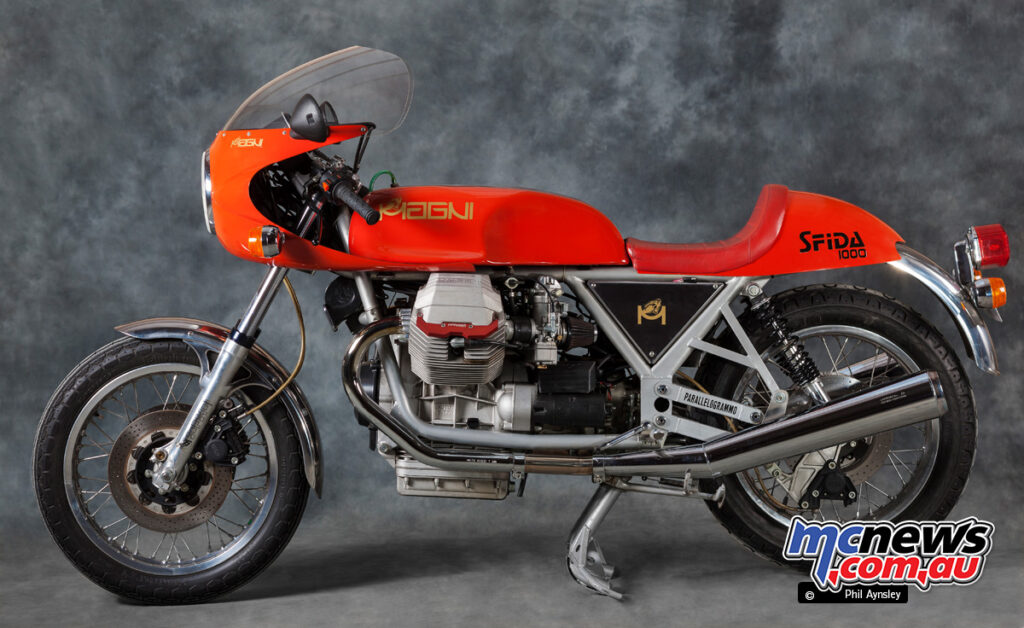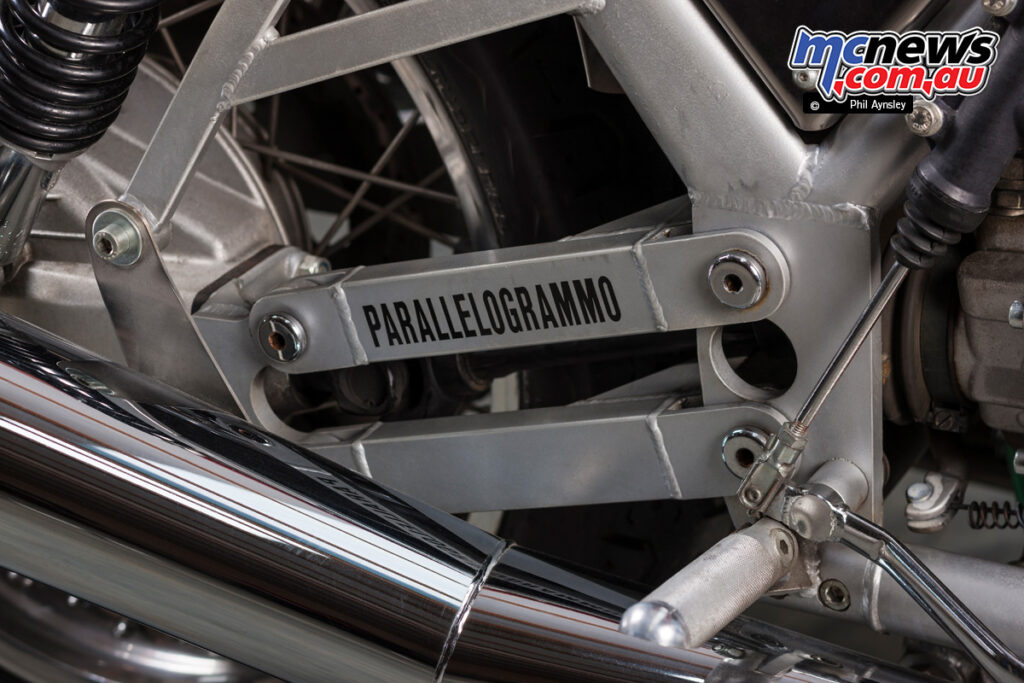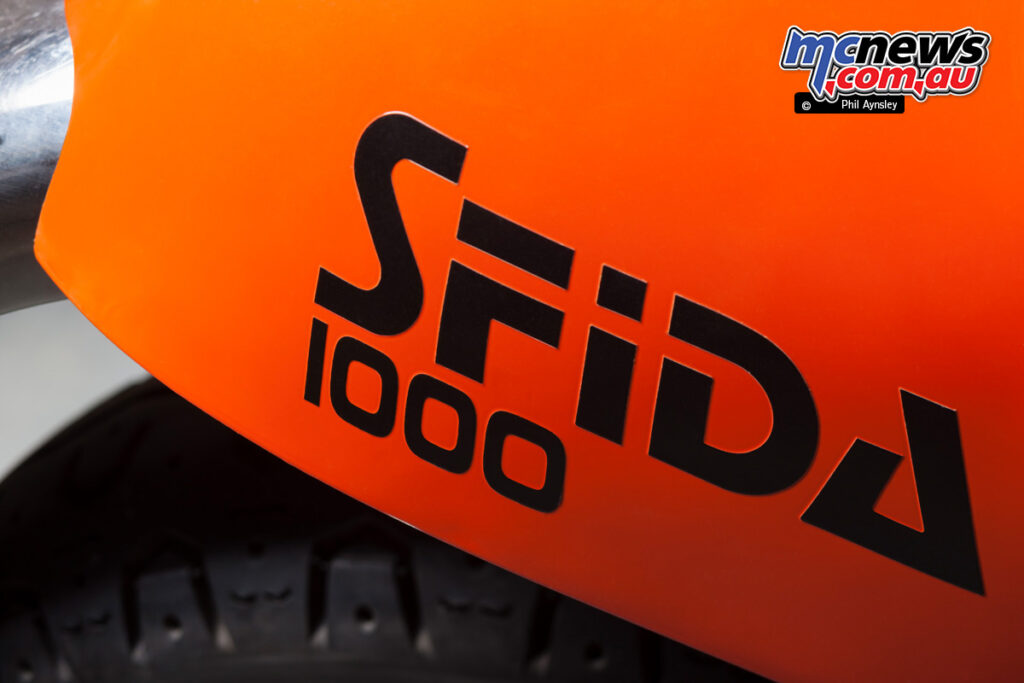Magni Guzzi Sfida 1000
With Phil Aynsley
Arturo Magni joined the MV Agusta race department in 1950 and remained there as the department manager until MV quit racing in 1977. He, together with his sons, then went into business modifying road-going MVs with new frames, chain final drive and bodywork.
However realising that there were only so many potential MV customers, they soon turned to modifying first Hondas, then BMWs and finally, in 1985, Moto Guzzis.

The first Magni Guzzi was the “Le Mans” and it featured Magni’s new developed ‘parallelogrammo’ rear suspension system which was designed to cancel the torque reaction of the shaft drive. The “Classico 1000” and “Arturo 1000” models were released in ’87 and then in ’89 the “Sfida” (Challenge).
The Sfida was styled to recall Italian racing bikes of the ‘60s such as Gilera and MV Agusta with its sculpted tank and humped seat. The motor was the 1000 cc two-valve unit used by the Guzzi LeMans and made around 90 hp.

A 400 cc model (smaller and lighter than the 1000) was developed when 90 400 cc motors became available from Moto Guzzi. They were sold in Japan and fitted with 18 inch wheels and Marzocchi suspension.
About 58 Sfida 1000s were produced before the Sfida 1100 was introduced in 1996. This still used the LeMans motor but fitted with a big-bore kit. A new chassis (retaining the parallelogrammo rear end) was used, together with Forcelle Italia front forks, Koni rear shocks and Gold Line Brembo brakes.

The next Sfida update was in 1997 with the 1100 ie Biposto which employed Guzzi’s electronic fuel-injection and had a convertible dual seat. The biggest change to the model came the following year with the introduction of the four-valve 1000cc Daytona engine. Output was raised to 102 hp. A monoshock version of the parallelogramo rear suspension was fitted.
The final Sfida model was the Giappone 52 (Japan 52) built to commemorate both the 20th anniversary of the company’s founding and 50 years for the Japanese importer, Fukuda Motors. The 1100ie motor was used and a full fairing featuring large bulges with air scoops was fitted. As the name implies, 52 were built.
The bike seen here is a 1991 Sfida 1000 and was photographed in New Zealand. The original red paint has faded somewhat.




































